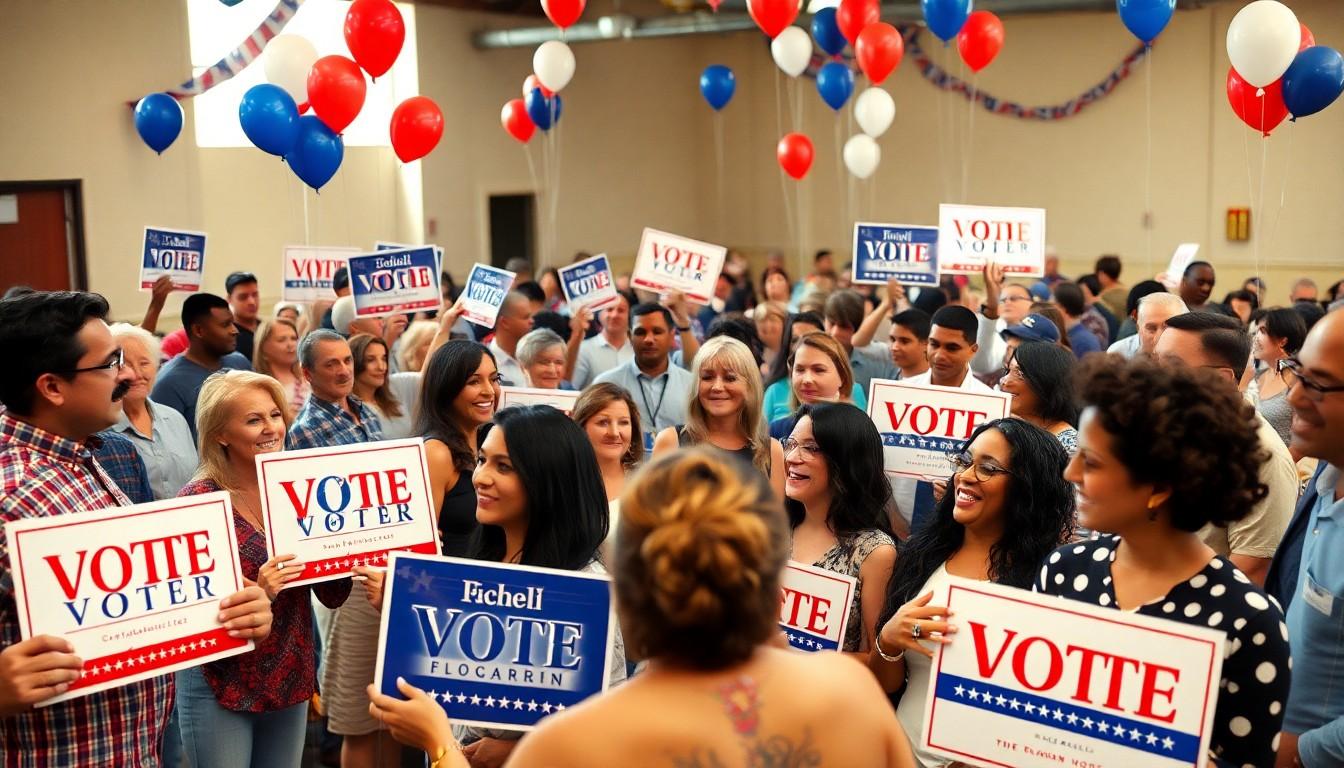Physical Address
304 North Cardinal St.
Dorchester Center, MA 02124

In the wild world of politics, fundraising is the lifeblood that keeps campaigns alive and kicking. Picture it: candidates hustling like they’re at a bake sale, except instead of cookies, they’re serving up promises and political platitudes. From lavish gala dinners to grassroots bake-offs, the methods are as diverse as the candidates themselves.
Political campaign fundraising serves as the backbone for candidates seeking to finance their electoral ambitions. Funding sources encompass individual donations, party contributions, political action committees (PACs), and online crowdfunding platforms. Each source plays a vital role in shaping a candidate’s campaign strategy.
Candidates employ a range of tactics to generate funds. High-profile events, such as gala dinners and celebrity fundraisers, attract wealthy donors willing to support political causes. Community-based efforts, such as local meet-and-greets and grassroots rallies, also engage average citizens, encouraging them to contribute to campaigns they believe in.
Many candidates utilize online tools to enhance their fundraising efforts. Social media platforms become essential venues for reaching potential donors. Fundraising emails, crowdfunding sites, and social media campaigns create a more inclusive atmosphere for supporters. Real-time updates on campaign progress keep donors informed, fostering a sense of connection.
Comprehensive fundraising strategies include adherence to Federal Election Commission (FEC) regulations. Transparency remains crucial, as candidates must disclose their fundraising activities and spending. Understanding these regulations helps candidates avoid potential legal pitfalls.
Data reveals significant trends in political fundraising. The 2020 U.S. presidential election saw over $14 billion raised, indicating a growing trend in campaign financing. As technology advances, digital fundraising continues to gain momentum, leading to increased contributions from a broader donor base.
Fundraising impacts election outcomes. Candidates with substantial financial resources can amplify their outreach efforts, invest in advertising, and mobilize their supporters effectively. Thus, successful fundraising becomes an integral part of any political campaign, influencing results at all levels of government.

Political campaign fundraising has undergone significant changes throughout U.S. history, adapting to shifts in political culture, technology, and regulation.
Campaign financing evolved from informal contributions by local supporters to complex systems involving various sources. Initially, local political machines controlled funds, utilizing donations from wealthy individuals and businesses. The introduction of mass media in the 20th century marked a turning point, leading to increased fundraising efforts and targeting broader audiences. Digital platforms transformed this landscape further, enabling candidates to reach potential donors directly through social media and crowdfunding tools. By the 2020 election, over $14 billion highlighted the scale of modern fundraising, illustrating how financial backing plays a crucial role in campaigns.
Key legislation shaped the framework of political campaign fundraising in the United States. The Federal Election Campaign Act of 1971 established disclosure requirements for contributions and expenditures. In 2002, the Bipartisan Campaign Reform Act aimed to curtail soft money contributions, emphasizing transparency in fundraising. Subsequent Supreme Court rulings, such as Citizens United v. FEC (2010), allowed for unlimited independent spending by corporations, significantly impacting the fundraising landscape. These laws reflect ongoing debates about the influence of money in politics and the necessity for regulation to ensure fair elections.
Fundraising practices continue to shift, reflecting technological advancements and evolving political strategies. Digital platforms play a vital role in shaping these methods.
Innovative strategies dominate the digital fundraising landscape now. Campaigns utilize social media to engage voters and solicit donations. Online crowdfunding platforms attract small donations from a wide base of supporters, democratizing campaign financing. Mobile apps and text-to-give options provide convenience for donors and increase participation rates. Data analytics enhance targeting efforts, allowing campaigns to reach specific demographics effectively. Transparency remains crucial as candidates disclose their fundraising activities in compliance with FEC regulations.
Super PACs significantly influence political campaign fundraising’s current landscape. Independent expenditure-only committees support candidates by raising unlimited funds from individuals and corporations. They often focus on specific issues or candidates, amplifying their messages through advertisements and outreach. The 2010 Citizens United v. FEC ruling facilitated this growth, enabling corporations to engage in campaign financing with fewer restrictions. Campaigns actively collaborate with Super PACs to enhance their fundraising efforts and extend their reach. Their presence underscores ongoing concerns regarding the impact of money in politics and the need for further regulation.
Political campaign fundraising significantly affects the electoral landscape, influencing candidates’ strategies and opportunities. Fundraising efforts directly correlate with a candidate’s ability to reach voters and communicate their message.
Candidates with substantial financial resources often achieve greater success. Extensive funding enables effective advertising, outreach programs, and engagement initiatives. In 2020, candidates raised over $14 billion, demonstrating that financial backing amplifies efforts to mobilize supporters. Voter contact routes expand with increased funding, which often translates into higher vote counts. Campaigns leveraging digital platforms and targeted strategies enhance their reach, cementing a connection with the electorate. Successful fundraising thus emerges as a key determiner in election outcomes, as evidenced in past elections.
Public perception is heavily influenced by a candidate’s fundraising methods. Transparency in fundraising practices fosters trust among voters. Compliance with Federal Election Commission regulations plays a crucial role in ensuring accountability. Candidates engaging with small donors often cultivate a positive image, demonstrating grassroots support. Conversely, reliance on wealthy donors or Super PACs can raise concerns about undue influence in politics. Research indicates that constituents prefer candidates who prioritize ethical fundraising practices, reflecting a growing demand for integrity in campaign financing. Overall, how candidates approach fundraising impacts both their credibility and the trust voters place in them.
Political campaign fundraising faces several challenges and controversies that impact the electoral process. High-profile donations often raise questions about transparency and accountability.
Transparency remains a crucial issue in political campaign fundraising. Candidates face scrutiny regarding their funding sources, especially when large sums come from wealthy individuals or organizations. Disclosure requirements set by the Federal Election Commission (FEC) mandate that candidates reveal their donors, yet loopholes exist. Super PACs, for example, can raise unlimited amounts without disclosing their backers in detail. Such practices lead to voter skepticism and questions about the integrity of the funding process. Enhanced transparency measures could improve public trust and ensure informed voter decisions.
Legal and ethical issues significantly shape political campaign fundraising. Various laws regulate campaign financing, designed to prevent corruption and ensure fair elections. The Federal Election Campaign Act outlines contribution limits and reporting requirements. However, the 2010 Supreme Court ruling in Citizens United v. FEC drastically altered the landscape by allowing unlimited independent spending. This decision enabled corporations and unions to influence elections without stringent oversight. Ethical considerations also come into play, as candidates must balance funding sources with public perception. Many voters prefer candidates who adhere to ethical standards, focusing on small contributions over sizable donations from special interest groups.